When you are looking to buy or refinance a home, there are many options available. Trust a lender who makes it simple.
Key Features
-
 Competitive Rates
Competitive Rates
-
 Quick Decisions
Quick Decisions
-
 Local Processing
Local Processing
{openTab}
When considering a mortgage, Advantage Financial FCU has 15 year and 30 year fixed and adjustable rate conventional loans. Down payments can be as low as 3%.
Our FHA loan is one of the most popular home loan options for individuals without a lot of money to put down and somewhat lower credit scores. It is backed by the Federal Housing Administration.
VA loans are another home loan option available to eligible service members and veterans. This loan is backed by the Department of Veterans Affairs and may offer up to 100% financing.
To replace an existing mortgage, refinancing your home loan is a great option to reduce monthly payments or lower the interest rate.
What needs to be considered before taking out a home loan?
- Make sure you have saved enough for the down payment and closing costs
- Check your credit and evaluate your rating
- Dispute any errors on your credit report
- Make sure you have more than two active credit accounts
- Leave older, good-standing accounts open
- Avoid opening new credit accounts
- Don’t use any more credit
- Don’t transfer large sums of money between savings accounts
Find rates and more information on home loans here.
For questions or asisstance regarding our mortgage products, please call 855-913-6186
or 800-822-6875 option 3, then option 1.
Mailing address for 1st mortgage payments only:
Credit Union Mortgage Association PO Box 1145 Fairfax, VA 22038
Mortgages and home equity loans are both home loan options in which you pledge your home as collateral. The lender can seize your home if you don't keep up with your monthly payments.
The difference is, a traditional mortgage is used to purchase a home, while a home equity loan is available after you already own the home and the value of the property exceeds the mortgage amount.
- Mortgages and home equity loans are both home loan options in which your home becomes collateral.
- For mortgages, the bank lends up to 97% of your home’s current value, or the initial purchase price, whichever is less.
- A home equity loan is available once you have equity in your property.
Mortgages
- Competitive rates for home purchase and refinance
- Local loan advisors who know the Washington D.C. real estate market
- Loans available in all 50 states
- Free pre-approval for extra confidence during your house hunt
- 15 and 30 year fixed rate mortgages
- FHA Mortgage Loans
- VA Loans
- Adjustable Rate Mortgages (ARM)
- 15/15 Adjustable Rate Mortgages (ARM)-Special product-ask for details
When a bank lends a borrower money to purchase a home it is called a mortgage. The bank lends a percentage of the home’s current value or the initial purchase price, whichever is less. The difference between the purchase price and the loan amount is the down payment.
For example, if you’re buying a $300,000 home, and you are putting 20% down you will apply for a mortgage of $240,000. You must come up with the remaining $60,000 on your own. The type of mortgage loan you choose will determine the minimum down payment
An FHA mortgage is a home loan option which allows you to put less money down (3.5%), as long as you pay the FHA fees and insurance premiums. Conventional loan also offer lower down payments (as low as 3%) if you pay for private mortgage insurance (PMI). The interest rate on a mortgage can be fixed or variable. You repay the amount of the loan plus interest over an agreed upon time frame, with the most common terms being 15 or 30 years.
Home Equity Loans
- Competitive rates and terms for major life events
- Education expenses
- Home remodeling projects
- Debt consolidation
- The existing equity in your home is used as collateral
- Fixed rate, fixed term Home equity loan or home equity line of credit (HELOC) available
A home equity loan is often referred to as a second mortgage. There are two types of home equity loan. A fixed rate home equity loan is similar to a traditional mortgage where you receive all of the loan funds at once and repay in equal payments over a fixed term. A home equity line of credit (HELOC) works like a credit card where you can take advances for a period of time and make payments based on how much you have borrowed to date. At some point you can no longer take additional advances and you must begin repaying the balance. HELOC interest rates are normally variable and tied to an index like the Wall Street Journal Prime Rate
Equity is the difference between the property’s current value and the homeowner’s existing mortgage balance. For example, if you owe $200,000 on a home valued at $350,000, you have $150,000 in equity. You can borrow a percentage of the $150,000 using a home equity loan.
Different lenders have different limits as to what percentage of a home’s equity they are willing to lend, and your credit plays a role in their decision.
A loan-to-value (LTV) ratio is used by lenders to calculate out how much money they will offer based on your risk as a borrower. You can determine your LTV by adding the amount you want to borrow to the amount you still owe, then divide that by the appraised value of the house.
If the amount you owe is fairly low, and/or if your home’s appraised value has risen significantly, your LTV ratio could be very low, and you could get a sizable loan because you have significant equity and the risk of lending to you is lower.
In most situations, a home equity loan or HELOC is considered a second lien. If you own your property with no outstanding debt, you may decide to take out a loan against your home’s value. In this case, the lender making the home equity loan is considered a “first lien holder”.
For questions or asisstance regarding our mortgage products, please call 855-913-6186
or 800-822-6875 option 3, then option 1.
Looking to shorten your loan term or lower your interest rate with a new mortgage loan? Refinancing can be a great solution to minimize monthly payments or put the equity in your home to work for you.
Refinancing a home loan can also be a great opportunity to change loan programs. Switching to a fixed loan rate from an adjustable rate mortgage can help your monthly payments become stable and steady.
With Advantage Financial FCU, our low refinance rates provide solutions for more flexibility and affordability for your home. By reducing the loan term length or finally financing that home renovation project you’ve been dreaming of, refinancing can be a great way to get started.
Whether you’re interested in a conventional fixed-rate loan or meet the eligibility requirements for a VA loan or FHA loan, Advantage Financial FCU will guide you to a well-informed decision.
Our home mortgage loan lending team stands ready to assist you in finding the best home loan option for your needs and your financial goals.

